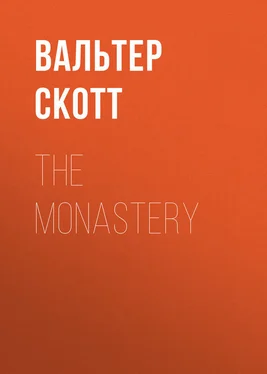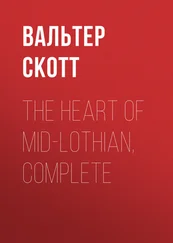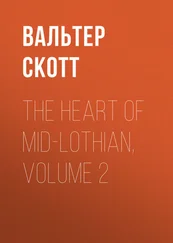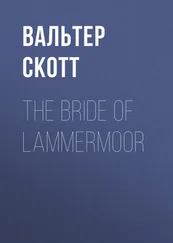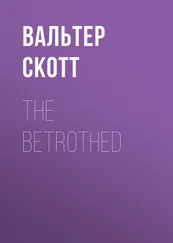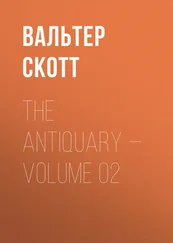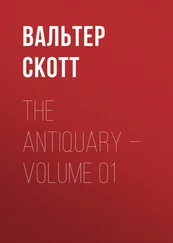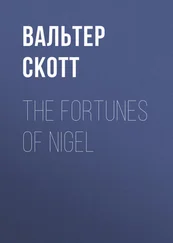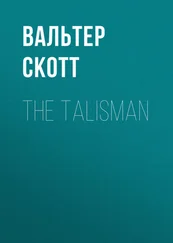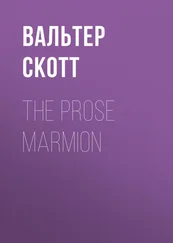Вальтер Скотт - The Monastery
Здесь есть возможность читать онлайн «Вальтер Скотт - The Monastery» — ознакомительный отрывок электронной книги совершенно бесплатно, а после прочтения отрывка купить полную версию. В некоторых случаях можно слушать аудио, скачать через торрент в формате fb2 и присутствует краткое содержание. Жанр: foreign_antique, foreign_prose, Альтернативная история, на английском языке. Описание произведения, (предисловие) а так же отзывы посетителей доступны на портале библиотеки ЛибКат.
- Название:The Monastery
- Автор:
- Жанр:
- Год:неизвестен
- ISBN:нет данных
- Рейтинг книги:4 / 5. Голосов: 1
-
Избранное:Добавить в избранное
- Отзывы:
-
Ваша оценка:
- 80
- 1
- 2
- 3
- 4
- 5
The Monastery: краткое содержание, описание и аннотация
Предлагаем к чтению аннотацию, описание, краткое содержание или предисловие (зависит от того, что написал сам автор книги «The Monastery»). Если вы не нашли необходимую информацию о книге — напишите в комментариях, мы постараемся отыскать её.
The Monastery — читать онлайн ознакомительный отрывок
Ниже представлен текст книги, разбитый по страницам. Система сохранения места последней прочитанной страницы, позволяет с удобством читать онлайн бесплатно книгу «The Monastery», без необходимости каждый раз заново искать на чём Вы остановились. Поставьте закладку, и сможете в любой момент перейти на страницу, на которой закончили чтение.
Интервал:
Закладка:
In imitation of an example so successful, the White Lady of Avenel was introduced into the following sheets. She is represented as connected with the family of Avenel by one of those mystic ties, which, in ancient times, were supposed to exist, in certain circumstances, between the creatures of the elements and the children of men. Such instances of mysterious union are recognized in Ireland, in the real Milosian families, who are possessed of a Banshie; and they are known among the traditions of the Highlands, which, in many cases, attached an immortal being or spirit to the service of particular families or tribes. These demons, if they are to be called so, announced good or evil fortune to the families connected with them; and though some only condescended to meddle with matters of importance, others, like the May Mollach, or Maid of the Hairy Arms, condescended to mingle in ordinary sports, and even to direct the Chief how to play at draughts.
There was, therefore, no great violence in supposing such a being as this to have existed, while the elementary spirits were believed in; but it was more difficult to describe or imagine its attributes and principles of action. Shakespeare, the first of authorities in such a case, has painted Ariel, that beautiful creature of his fancy, as only approaching so near to humanity as to know the nature of that sympathy which the creatures of clay felt for each other, as we learn from the expression – “Mine would, if I were human.” The inferences from this are singular, but seem capable of regular deduction. A being, however superior to man in length of life – in power over the elements – in certain perceptions respecting the present, the past, and the future, yet still incapable of human passions, of sentiments of moral good and evil, of meriting future rewards or punishments, belongs rather to the class of animals, than of human creatures, and must therefore be presumed to act more from temporary benevolence or caprice, than from anything approaching to feeling or reasoning. Such a being’s superiority in power can only be compared to that of the elephant or lion, who are greater in strength than man, though inferior in the scale of creation. The partialities which we suppose such spirits to entertain must be like those of the dog; their sudden starts of passion, or the indulgence of a frolic, or mischief, may be compared to those of the numerous varieties of the cat. All these propensities are, however, controlled by the laws which render the elementary race subordinate to the command of man – liable to be subjected by his science, (so the sect of Gnostics believed, and on this turned the Rosicrucian philosophy,) or to be overpowered by his superior courage and daring, when it set their illusions at defiance.
It is with reference to this idea of the supposed spirits of the elements, that the White Lady of Avenel is represented as acting a varying, capricious, and inconsistent part in the pages assigned to her in the narrative; manifesting interest and attachment to the family with whom her destinies are associated, but evincing whim, and even a species of malevolence, towards other mortals, as the Sacristan, and the Border robber, whose incorrect life subjected them to receive petty mortifications at her hand. The White Lady is scarcely supposed, however, to have possessed either the power or the inclination to do more than inflict terror or create embarrassment, and is also subjected by those mortals, who, by virtuous resolution, and mental energy, could assert superiority over her. In these particulars she seems to constitute a being of a middle class, between the esprit follet who places its pleasure in misleading and tormenting mortals, and the benevolent Fairy of the East, who uniformly guides, aids, and supports them.
Either, however, the author executed his purpose indifferently, or the public did not approve of it; for the White Lady of Avenel was far from being popular. He does not now make the present statement, in the view of arguing readers into a more favourable opinion on the subject, but merely with the purpose of exculpating himself from the charge of having wantonly intruded into the narrative a being of inconsistent powers and propensities.
In the delineation of another character, the author of the Monastery failed, where he hoped for some success. As nothing is so successful a subject for ridicule as the fashionable follies of the time, it occurred to him that the more serious scenes of his narrative might be relieved by the humour of a cavaliero of the age of Queen Elizabeth. In every period, the attempt to gain and maintain the highest rank of society, has depended on the power of assuming and supporting a certain fashionable kind of affectation, usually connected with some vivacity of talent and energy of character, but distinguished at the same time by a transcendent flight, beyond sound reason and common sense; both faculties too vulgar to be admitted into the estimate of one who claims to be esteemed “a choice spirit of the age.” These, in their different phases, constitute the gallants of the day, whose boast it is to drive the whims of fashion to extremity.
On all occasions, the manners of the sovereign, the court, and the time, must give the tone to the peculiar description of qualities by which those who would attain the height of fashion must seek to distinguish themselves. The reign of Elizabeth, being that of a maiden queen, was distinguished by the decorum of the courtiers, and especially the affectation of the deepest deference to the sovereign. After the acknowledgment of the Queen’s matchless perfections, the same devotion was extended to beauty as it existed among the lesser stars in her court, who sparkled, as it was the mode to say, by her reflected lustre. It is true, that gallant knights no longer vowed to Heaven, the peacock, and the ladies, to perform some feat of extravagant chivalry, in which they endangered the lives of others as well as their own; but although their chivalrous displays of personal gallantry seldom went farther in Elizabeth’s days than the tilt-yard, where barricades, called barriers, prevented the shock of the horses, and limited the display of the cavalier’s skill to the comparatively safe encounter of their lances, the language of the lovers to their ladies was still in the exalted terms which Amadis would have addressed to Oriana, before encountering a dragon for her sake. This tone of romantic gallantry found a clever but conceited author, to reduce it to a species of constitution and form, and lay down the courtly manner of conversation, in a pedantic book, called Euphues and his England. Of this, a brief account is given in the text, to which it may now be proper to make some additions.
The extravagance of Euphuism, or a symbolical jargon of the same class, predominates in the romances of Calprenade and Scuderi, which were read for the amusement of the fair sex of France during the long reign of Louis XIV., and were supposed to contain the only legitimate language of love and gallantry. In this reign they encountered the satire of Moliere and Boileau. A similar disorder, spreading into private society, formed the ground of the affected dialogue of the Praecieuses , as they were styled, who formed the coterie of the Hotel de Rambouillet, and afforded Moliere matter for his admirable comedy, Les Praecieuses Ridicules . In England, the humour does not seem to have long survived the accession of James I.
The author had the vanity to think that a character, whose peculiarities should turn on extravagances which were once universally fashionable, might be read in a fictitious story with a good chance of affording amusement to the existing generation, who, fond as they are of looking back on the actions and manners of their ancestors, might be also supposed to be sensible of their absurdities. He must fairly acknowledge that he was disappointed, and that the Euphuist, far from being accounted a well drawn and humorous character of the period, was condemned as unnatural and absurd. It would be easy to account for this failure, by supposing the defect to arise from the author’s want of skill, and, probably, many readers may not be inclined to look farther. But as the author himself can scarcely be supposed willing to acquiesce in this final cause, if any other can be alleged, he has been led to suspect, that, contrary to what he originally supposed, his subject was injudiciously chosen, in which, and not in his mode of treating it, lay the source of the want of success.
Читать дальшеИнтервал:
Закладка:
Похожие книги на «The Monastery»
Представляем Вашему вниманию похожие книги на «The Monastery» списком для выбора. Мы отобрали схожую по названию и смыслу литературу в надежде предоставить читателям больше вариантов отыскать новые, интересные, ещё непрочитанные произведения.
Обсуждение, отзывы о книге «The Monastery» и просто собственные мнения читателей. Оставьте ваши комментарии, напишите, что Вы думаете о произведении, его смысле или главных героях. Укажите что конкретно понравилось, а что нет, и почему Вы так считаете.
